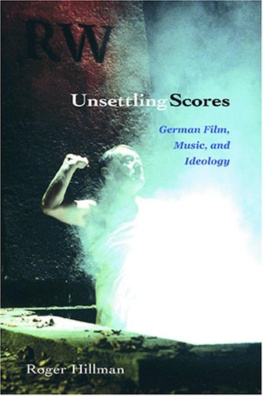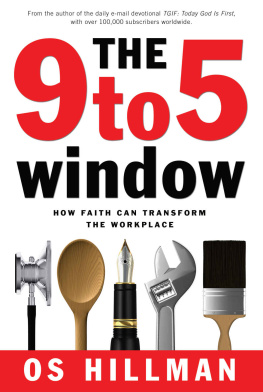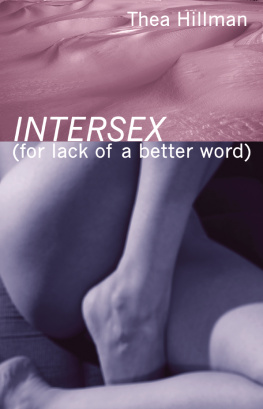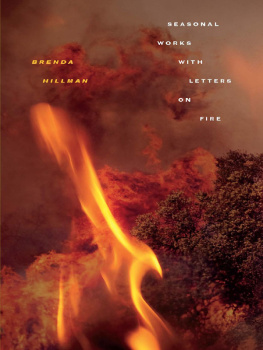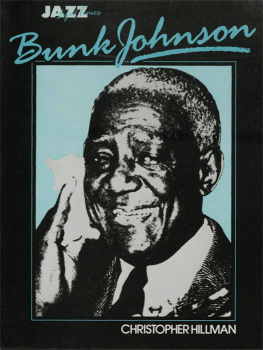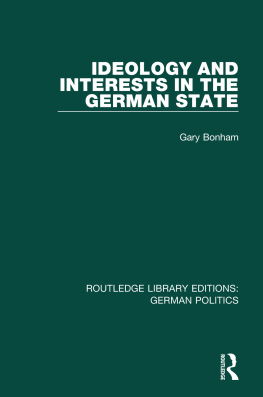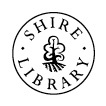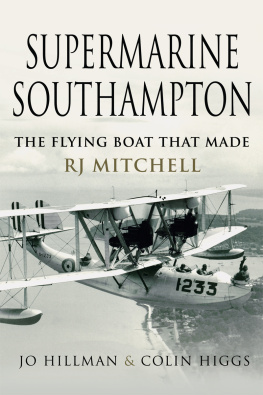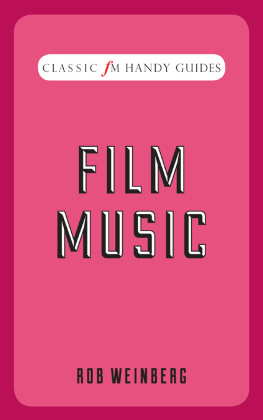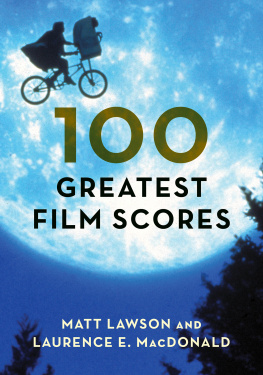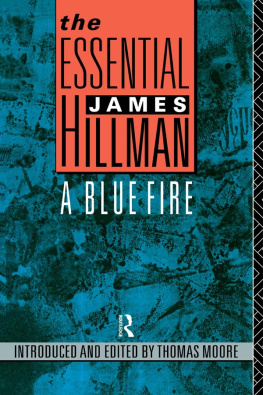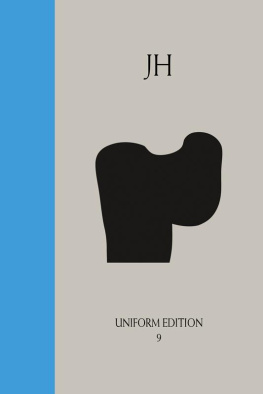Hillman - Unsettling scores : German film, music, and ideology
Here you can read online Hillman - Unsettling scores : German film, music, and ideology full text of the book (entire story) in english for free. Download pdf and epub, get meaning, cover and reviews about this ebook. City: Array, Germany., Array, year: 2005, publisher: Indiana University Press, genre: Children. Description of the work, (preface) as well as reviews are available. Best literature library LitArk.com created for fans of good reading and offers a wide selection of genres:
Romance novel
Science fiction
Adventure
Detective
Science
History
Home and family
Prose
Art
Politics
Computer
Non-fiction
Religion
Business
Children
Humor
Choose a favorite category and find really read worthwhile books. Enjoy immersion in the world of imagination, feel the emotions of the characters or learn something new for yourself, make an fascinating discovery.
Unsettling scores : German film, music, and ideology: summary, description and annotation
We offer to read an annotation, description, summary or preface (depends on what the author of the book "Unsettling scores : German film, music, and ideology" wrote himself). If you haven't found the necessary information about the book — write in the comments, we will try to find it.
Unsettling scores : German film, music, and ideology — read online for free the complete book (whole text) full work
Below is the text of the book, divided by pages. System saving the place of the last page read, allows you to conveniently read the book "Unsettling scores : German film, music, and ideology" online for free, without having to search again every time where you left off. Put a bookmark, and you can go to the page where you finished reading at any time.
Font size:
Interval:
Bookmark:
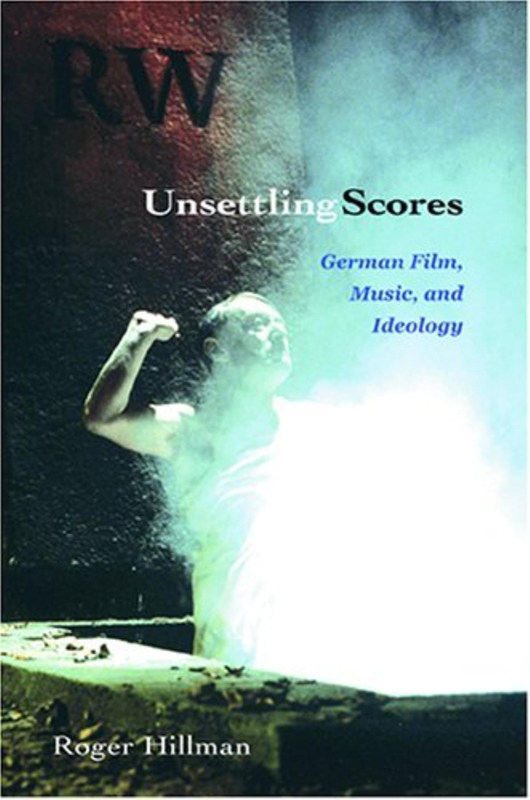
Unsettling
Scores
Scores
Roger Hillman
INDIANA UNIVERSITY PRESS
Bloomington and Indianapolis
This book is a publication of
Indiana University Press
601 North Morton Street
Bloomington, IN 474043797 USA
http://iupress.indiana.edu
Telephone orders 8008426796
Fax orders 8128557931
Orders by e-mail iuporder@indiana.edu
2005 by Roger Hillman
All rights reserved
No part of this book may be reproduced or utilized in any form or by any means, electronic or mechanical, including photocopying and recording, or by any information storage and retrieval system, without permission in writing from the publisher. The Association of American University Presses Resolution on Permissions constitutes the only exception to this prohibition.
The paper used in this publication meets the minimum requirements of American National Standard for Information SciencesPermanence of Paper for Printed Library Materials,
ANSI Z39.481984.
Manufactured in the United States of America
Library of Congress Cataloging-in-Publication Data
Hillman, Roger.
Unsettling scores : German film, music, and ideology / Roger Hillman. p. cm.
Includes bibliographical references (p.) and index.
ISBN 0253345375 (cloth : alk. paper) ISBN 0253217547 (pbk. : alk. paper)
1. Motion pictures and musicGermany. 2. Motion picture musicGermanyHistory and
criticism. 3. National socialism and motion pictures. I. Title.
ML2075.H54 2005
791.43024dc22
2004019209
1 2 3 4 5 10 09 08 07 06 05
FOR Gino
FOR Ken
FOR THE SONG OF THE NIGHT BIRD
Three: History on the Soundtrack: The Example of
Beethovens Ninth
Four: A Wagnerian German Requiem: Syberbergs
Hitler (1977)
Five: Alexander Kluges Songs without Words:
Die Patriotin (1979)
Six: Fassbinders Compromised Request Concert:
Lili Marleen (1980) no
Seven: The Great Eclecticism of the Filmmaker
Werner Herzog
Eight: Pivot Chords: Austrian Music and Viscontis
Senso (1954)
Unsettling
Scores
This project has evolved over a long time; in its broadest form it has grown over much of a lifetime. The following includes but a few of those who have had some input to reflections on film, music, or German studies. To all, the named and the unnamed, my deepest thanks.
Among university colleagues, Brian Coghlan, Tony Stephens, and Margaret Stoljar spring most readily to mind, though it really started with Jim Woodfield at high school. Then came Michael Noone andespeciallyDeborah Crisp from the Canberra School of Music, as well as Robyn Holmes. The Humanities Research Centre at the Australian National University, then headed by Ian Donaldson, first let me loose on film in an academic context, a turning point in life.
The beginnings of the more focused project gained from talks with Professor Wilhelm Vosskamp in Kln. David Roberts responded to chapter 4, Karis Muller and Jeongwon Joe to other sections, Deborah Crisp to the whole manuscript, and a number of conference audiences to reduced versions of different parts. David Boyd was there from the start with film studies input.
Like many, I am indebted to Phil Brophy and his team for the Melbourne Cinesonic conferences, an ideal conjunction of film studies and sound, as well as to their participants, especially Adrian Martin. Many indirect impulses came from the old Friday night ethnographic film group based on the Canberra house of Judith and David MacDougall. Simone Gigliotti shares all she tracks down of relevance, and has lent encouragement when spirits and perseverance have flagged.
Judith Pickering gathered many materials and was full of ideas while research assistant on the project, and Sandra McColl gave both editorial and more general feedback of great value, when she held a similar position.
Beyond enabling the last two posts, the Australian National University made overseas field trips possible through faculty research grants. I much appreciate a grant from the Publications Subsidy Committee, which enabled the film stills. To library staff, especially at Chifley Library, the Canberra School of Music Library, and the Berlin Filmmuseum, I am very thankful. The Alexander von Humboldt Stiftung enabled me to pursue the early stages of the project in Kln and has enriched acquaintance with Germany over a number of years. In the United States, Professors Tony Kaes, Susan McClary, Robert Rosenstone, and David Neumeyer have been particularly generous with their time and their ideas, while Rosemary and Paul Lloyd have shared the warmth and peace of their home, as well as giving much encouragement.
At the Indiana University Press, special thanks to editor Michael Lundell, as well as to two readers for their thought-provoking reports. Leslie Devereaux and Astara Rose had significant indirect input. Earlier, Christine and Siegfried Wiemer introduced me to much of the culture and many of the identity problems of Germany. Those to whom this book is dedicated have contributed to a degree surpassing acknowledgment.
Other friends and family, even when bemused by a largo tempo at various stages, have kept me going and kept life going. My wife, Vivien, and daughters, Miranda and Kirsten, have had to live with this thing for nearly as long as Kirsten can remember, but they have been ever supportive, and without their good humor this book could not have come to fruition. Mum and Dad cultivated a musical household from the outset, provided the space for films, and encouraged the pursuit of German. I have indeed been fortunate, not least with the unfading thrill of the topic itself.
Earlier versions of parts of this manuscript have appeared in a range of sources. My thanks for permission to reproduce these in their revised form to Slavic and East European Performance, Musicology Australia, Cinesonic, and the Journal of European Studies.
Regardless of the words, it seems the melodic contour of the song describes the nature of the land over which the song passes. So, if the Lizard Man were dragging his heels across the salt-pans of Lake Eyre, you could expect a succession of long flats, like Chopins Funeral March. If he were skipping up and down the MacDonnell escarpments, youd have a series of arpeggios and glissandos, like Liszts Hungarian Rhapsodies.
Certain phrases, certain combinations of musical notes, are thought to describe the action of the Ancestors feet. One phrase would say, Salt-pan; another Creek-bed, Spinifex, Sand-hill, Mulga-scrub, Rock-face and so forth. An expert song-man, by listening to their order of succession, would count how many times his hero crossed a river or scaled a ridgeand be able to calculate where, and how far along, a Songline he was.
Hed be able, said Arkady, to hear a few bars and say, This is Middle Bore or That is Oodnadattawhere the Ancestor did X or Y or Z.
So a musical phrase, I said, is a map of reference?
Music, said Arkady, is a memory bank for finding ones way about the world.
Bruce Chatwin, The Songlines (London: Jonathan Cape, 1987), 108
This study looks at the use of classical music in film, focusing on films of the New German Cinema of the 1970s and early 1980s.were secondary to its cultural weightings. This music consciously called attention to itself, not just as music but as a kind of historical time capsule, except that the intervening years had permeated the capsule. Unlike Hollywood scores, this was music with an independent existence before the film, music which was fragmented (heard on the soundtrack in excerpt form) and part of a grand but problematic cultural tradition. In the group of films treated, this tradition still registered the aftereffects of years of subservience to Nazi cultural politics.
Font size:
Interval:
Bookmark:
Similar books «Unsettling scores : German film, music, and ideology»
Look at similar books to Unsettling scores : German film, music, and ideology. We have selected literature similar in name and meaning in the hope of providing readers with more options to find new, interesting, not yet read works.
Discussion, reviews of the book Unsettling scores : German film, music, and ideology and just readers' own opinions. Leave your comments, write what you think about the work, its meaning or the main characters. Specify what exactly you liked and what you didn't like, and why you think so.

